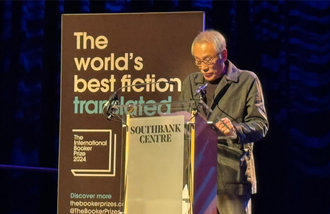Consensus on military reform
The presidential office and the Defense Ministry face criticism from military figures and reserve generals over 73 defense reform items. The 307 plan seeks to transform the military into an operation-focused combative force. Above all, tackling the problems of the joint operation of the armed forces is paramount as shown in North Korea`s sinking of the Cheonan and shelling of Yeonpyeong Island last year. True reform is impossible without a wide range of discussion and persuasion on an issue debated by the military, reserve forces and national security experts. The most important part of the reform is giving the role of the joint forces commander to the chairman of the Joint Chiefs of Staff. The chairman is the country`s supreme commander who controls the Army, Navy and Air Force to help the defense minister and president.
The chairmanship, however, suffers from lack of authority and support system. He or she has no authority to select Army, Navy and Air Force officers as advisers to joint chiefs of staff and no system can control the chiefs of staff of the armed forces. The chiefs of staff felt constrained so giving partial authority to the chairman and letting him or her directly control the chiefs of staff, who also serve as operational commanders, will help enhance joint power.
Still, certain active and reserve generals express different views probably due to the lack of persuasion of and communication with the presidential office and the military. The Defense Ministry has been busy reporting the reform plan to the president and announcing it to the media. Only after the reserve generals opposition was covered by news outlets did the government begin to clarify this Monday. This could have been easily handled had there been a process that collects opinions on the principle of civilian control, a discussion process, and the timing of reform in the run-up to North Korea`s completion of a strong and prosperous nation" by next year, a matter raised by reserve generals.
For successful military reform, consensus is needed among the commander-in-chief, military and reserve units. Those who were enraged and pained after the attacks on the Cheonan and Yeonpyeong by North Korea last year were retired generals. They took the lead in opposing the early return of wartime operational command to Seoul under the previous Roh Moo-hyun administration. They should not be kept distant because they disagree with the governments military reform. Frank discussion among the president, military and retired generals can help alleviate the peoples fears over national security.







